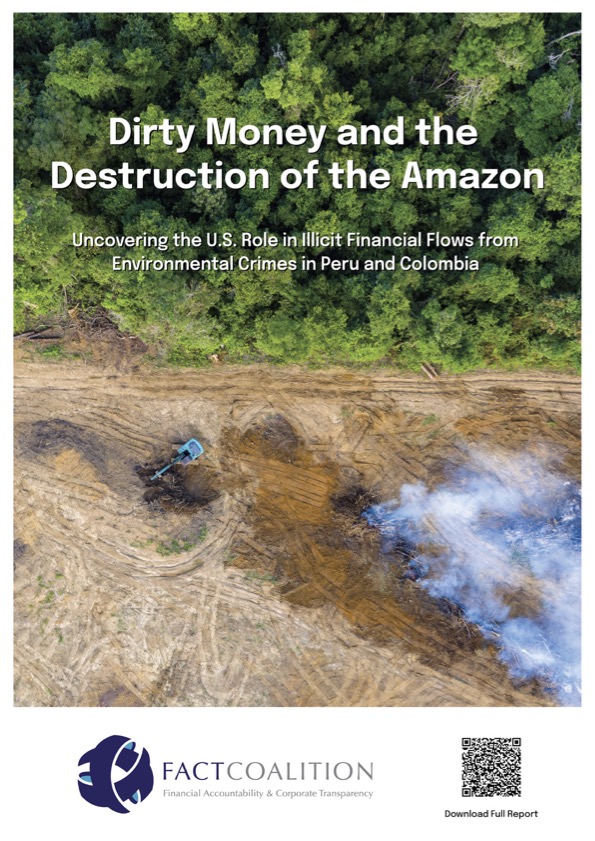Environmental crimes, such as illegal mining and logging, are the third largest type of criminal activity in the world, yielding as much as $281 billion in proceeds every year. There is a pervasive perception that environmental crimes are “low-risk, high-reward” offenses. The Financial Action Task Force as well as experts in the U.S. and Latin America have asserted that there are serious legal, information sharing, and capacity challenges that make it difficult to investigate and prosecute these offenses. Financial secrecy – which environmental criminals use to obscure their identity, facilitate their operations, and launder the proceeds of crime – is no small part of that equation.
The United States, as the world’s largest economy and premier supplier of financial secrecy, has a crucial role to play in denying financial safe haven to criminals that would degrade the Amazon. The FACT Coalition’s 100-plus members, including prominent environmental organizations, advocate for policies to combat the harmful impacts of corrupt financial practices.
FACT’s new report draws on interviews with local and regional activists, indigenous leaders, anti-money laundering experts, and government officials in Peru, Colombia, and the United States to show how financial secrecy contributes to facilitating these crimes. The report lays out a comprehensive U.S. reform agenda.
Click here for an executive summary of the report.
Click here to read the report in Spanish.

